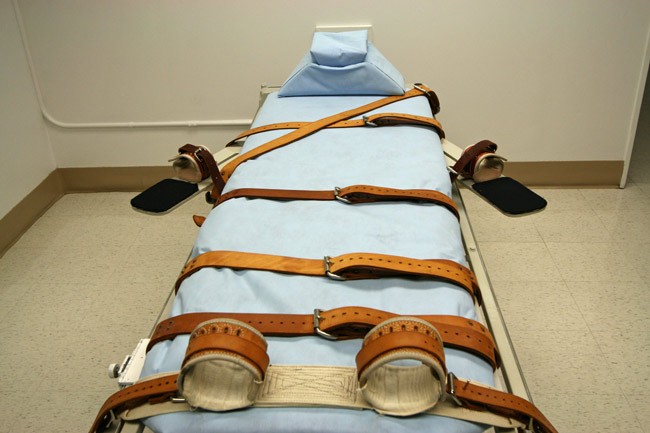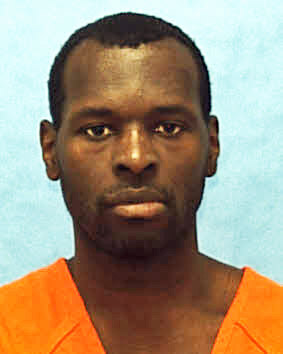
The United States Supreme Court, in an emphatic ruling Tuesday, declared Florida’s death penalty sentencing scheme to be a violation of the Sixth Amendment. The 8-1 decision is the latest blow against the death penalty in the United States, where state courts, legislatures and governors have been scaling back, suspending or abolishing capital punishment in growing numbers over the past decade.
Florida had been a notable exception, especially under Gov. Rick Scott, who has signed more death warrants–25–than any governor since the death penalty was restored in the state in the early 1970s. Tuesday’s decision has no bearing on Florida’s method of capital punishment or the Eighth Amendment: death row inmates may still choose between lethal injection and the electric chair. It only addresses the court proceedings leading up to a capital sentence.
Tuesday’s decision nevertheless may affect at least some, if not many, of the 390 inmates on Florida’s death row, putting their sentence in doubt if that sentence was reached through means the high court today declared unconstitutional.
“This may very, very well stop executions in Florida for quite a time while all of these cases might be pending,” said former Florida Supreme Court Justice Gerald Kogan, in comments to the News Service of Florida. Kogan is a death penalty opponent and one of three former justices who filed briefs supporting Hurst’s challenge. “What has happened today is, in my opinion, going to basically cause a moratorium on capital cases until the Supreme Court has time to sort this out.”
The decision, he predicted, is likely to spur an avalanche of appeals. “Attorneys who know what they’re doing are going to go ahead and file whatever actions they can to prevent their clients from being executed,” said Kogan, who described the ruling as “monumental.”
Who makes the final determination for a death sentence is at the heart of Florida’s problematic capital sentencing scheme. In 2002, the U.S. Supreme Court ruled in Ring v. Arizona that a jury, not a judge, must determine that aggravating factors justify an execution. That decision overturned a previous allowance that had given a judge the power to override a jury’s recommendation and impose a death sentence unilaterally.
Florida has since maintained that a jury’s advisory opinion to impose the death penalty is legal, allowing the judge to pick and choose aggravating factors that the jury may not have considered. Justice Sonia Sotomayor, writing for the majority Tuesday, disagreed. “We hold this sentencing scheme unconstitutional,” she wrote. “Sixth Amendment requires a jury, not a judge, to find each fact necessary to impose a sentence of death. A jury’s mere recommendation is not enough.”

Cynthia Harrison was the manager of a Popeye’s restaurant in Pensacola, where Hurst also worked. On May 2, 1998, her body body was discovered in the freezer, gagged and stabbed over 60 times. The restaurant safe was unlocked and missing hundreds of dollars. Hurst, according to witnesses, had claimed earlier that he was going to rob the restaurant. He claimed in a four-day trial that he never made it to work that day, and that someone else committed the murder.
A jury convicted him of murder but did not specify whether it was premeditated murder or felony murder for an unlawful killing during a robbery. Under Florida law, the maximum sentence could be life in prison absent aggravating factors.
A re-sentencing was necessary in 2012 (for reasons unrelated to the court’s decision Tuesday). The judge instructed the jury that it could recommend a death sentence if it found at least one aggravating factor. The jury voted 7-5 for death, but it was never clear whether a majority actually found one single aggravating factor to be the case, or whether some of the jurors found one aggravating factor while others found a different factor. Either way, the judge decided unilaterally that there were two aggravating factors present, and imposed the death sentence.
The Florida Supreme Court upheld the sentence in a 4-3 ruling in 2014. But Justice Barbara Pariente, in her dissent, referred to the U.S. Supreme Court’s 2002 decision and wrote that “Ring requires any fact that qualifies a capital defendant for a sentence of death to be found by a jury.”
That’s the approach the U.S. Supreme Court endorsed today, in effect turning Pariente’s dissent into Florida law. (The case has little bearing on the rest of the nation because Florida is one of just three states where a unanimous verdict by the jury is not necessary for a death penalty conviction or, in Florida’s case, recommendation.
Florida’s case was argued before the court by Florida Solicitor General Allen Winsor, who described Florida’s system as giving defendants a “judicial backstop” that strengthened rather than weakened the death penalty scheme, since it gave both a jury and a judge a say. Sotomayor was unmoved. “Florida offers a bevy of arguments for why Hurst’s sentence is constitutional,” she wrote. “None holds water.”
The decision notably overturns two U.S. Supreme Court precedents from Florida that had previously sanctioned the state’s Sixth Amendment application of the death penalty–Hildwin v. Florida, a 1989 case in which a jury unanimously recommended death for Paul Hildwin, but without a specific finding of aggravating factors (the judge found four such factors), and Spaziano v. Florida, a 1984 case in which a jury recommended life imprisonment for Joseph Spaziano, only to have the judge overrule and impose death.
Subsequent developments proved both those 1980s decisions wrong. Hildwin was released in July 2014, after 30 years on death row, after the Florida Supreme Court found that DNA evidence exonerated him. Spaziano’s sentence was commuted to life in prison.
Less than 24 hours after Florida killed inmate Oscar Ray Bolin Jr. in the state’s 23rd execution on Gov. Rick Scott’s watch, Scott signed his 25th death warrant, for Mark James Asay, who murdered Robert Lee Booker and Robert McDowell in 1987. A jury voted 9-3 to recommend death in both cases. Another Florida inmate, Michael Ray Lambrix, is scheduled to be executed on Feb. 11.
![]()
Hurst v. Florida: The Full Decision
Click to access florida-death-penalty-unconstitutional.pdf





























David S says
Bring back Ole Sparky,Please.
Woody says
The death penalty was a scheme?Eye for an eye, Florida needs an express lane like Texas and stackem up like cord wood.
Dave says
Darn shame that murders, butchers and child abusers get a free ride in prison these days and tax payers pay for their right, to free lodging, medical, TV, games, sports, reading etc.. etc… Few ever get to met their maker but instead stay in Hotel Inmate. So lets think this out, a man kills and women and cuts up her body and puts her body into the ground at trial gets life because we have holier than thou people out their that think he can be saved. Hang em high, smoke them in the chair, or save the tax payers a lot of money by using a firing squad right after the trial. . Bullets are cheap. The US Supreme Court, All I see is blind justice by a bunch of people out of touch with the nation. I also feel US Supreme Judges should only be allowed to serve 4 years.
Roll on 2 says
Bring back the Chair! There are some that have been on Death Row for more than 40 years!
scoff the cuff says
Oh, to be a Republic again, where the rule of five or nine didn’t apply.
Bc says
Its a joke that it takes 20-30 years to to execute a convicted low life. There sentences should be carried out quick after they are found guilty. its cruel for the families who wait for justice. And now the low life’s might be getting a pass what ever happened to a eye for a eye.
Nancy N. says
The bloodthirstiness in these comments should prompt some of these commenters to ask themselves some hard questions about what really separates them from the accused murderers they claim to despise so. Bloodlust and love of inflicting violence on others is no less pathological when done under the veil of law.